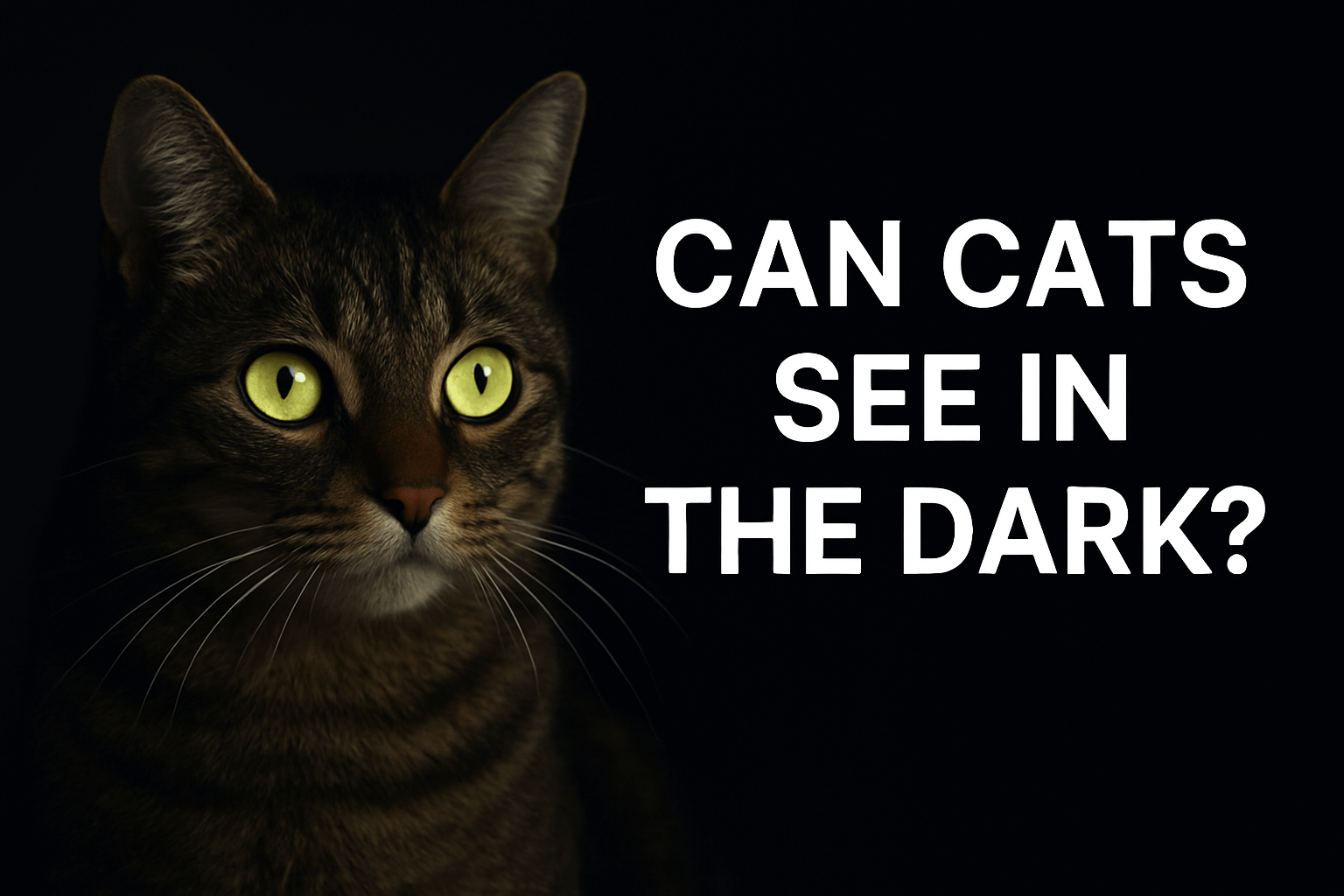Can Cats See in the Dark? The Truth About Feline Night Vision

Introduction
Have you ever noticed your cat confidently roaming the house at night and wondered, “Can cats really see in the dark?” The answer is yes — but not in complete darkness. Cats are equipped with special eye adaptations that allow them to see much better than humans in low light. Let’s take a closer look at how cats’ vision works at night, what they actually see, and how it compares to our own.
Table of Contents
How Cats’ Eyes Adapt to Darkness
Cats are most active at dawn and dusk, and their eyes are designed for survival in dim environments. The retina in a cat’s eye contains a much higher number of rod cells than ours. These rod cells are sensitive to light and motion, giving cats the ability to detect movement even when the light is faint.
Another key feature is the tapetum lucidum, a reflective layer behind the retina. This structure acts like a mirror, bouncing light back through the eye and giving the photoreceptors a second chance to capture it. It’s also the reason cats’ eyes glow in the dark when hit by a flashlight or car headlights.
Finally, their pupils can expand widely in darkness, allowing them to let in as much light as possible. This combination of adaptations makes cats excellent at navigating dimly lit spaces.
How Well Can Cats See in the Dark?
While cats can’t see in total darkness, they can see in conditions about six times darker than what humans need. Even a faint glow from a streetlight, moonlight, or a small lamp is enough for them to move around with confidence.
That said, their vision isn’t perfect. Cats don’t see fine details as clearly as humans do, and their world looks slightly blurrier. They also don’t see the full spectrum of colors. Instead, they perceive mostly blues and greens, with little ability to distinguish reds. Where cats truly excel, however, is in detecting motion. Even the smallest flicker of movement in the shadows is enough to grab their attention, which is part of what makes them such skilled hunters.
Cats’ Night Vision vs. Humans
Humans rely on bright light for sharp detail and a wide range of colors. Cats, on the other hand, trade some of that sharpness and color for superior low-light vision. Their eyes are perfectly tuned for spotting prey or navigating their environment at dawn, dusk, or nighttime. This explains why your cat may be full of energy during the late evening hours — their eyes are at their best during these times.
Do Cats Need a Night Light?
Most healthy cats do not need a night light to get around. Their eyes can make the most of even the faintest light sources in your home. However, a gentle night light can be helpful for older cats who may develop vision problems, or in homes with multiple levels or obstacles where extra light provides added safety.
Conclusion
So, can cats see in the dark? Not in complete darkness — but they can see far better than humans in low-light conditions. Their rod-rich retinas, reflective tapetum lucidum, and wide pupils give them the ability to navigate, hunt, and play with ease when the lights are low. Although they sacrifice sharp detail and a full color range, their night vision is one of the many superpowers that make cats fascinating companions.
Next time you see your cat gracefully exploring at night, you’ll know they’re relying on their extraordinary gift of feline night vision.
